Recent Blog Posts
Is Forgery Punished as Harshly as Identity Theft?
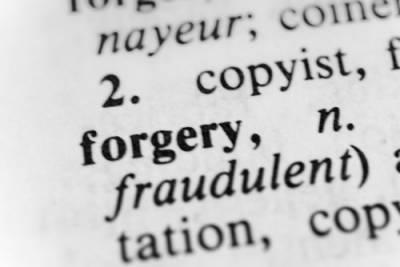 Illinois has two separate laws covering forgery and identity theft, however, they are both deceptive practices that are taken seriously due to the harm it causes a victim. Forgery is a crime that could lead to identity theft because it starts with using someone else’s signature to steal money, goods, or personal information. Both crimes are felony offenses, but for identity theft, punishments become more severe depending on the harm done to a victim.
Illinois has two separate laws covering forgery and identity theft, however, they are both deceptive practices that are taken seriously due to the harm it causes a victim. Forgery is a crime that could lead to identity theft because it starts with using someone else’s signature to steal money, goods, or personal information. Both crimes are felony offenses, but for identity theft, punishments become more severe depending on the harm done to a victim.
What Is the Difference?
Illinois law says that someone commits forgery when they do any of the following with the intent to defraud a victim:
- Make or alter a document that has false information
- Deliver false documents with the knowledge that the information is false
- Possession with intent to deliver false documents
What Is Aggravated DUI in Illinois?
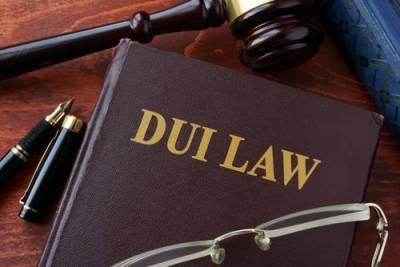 There is a more severe DUI penalty in Illinois known as aggravated DUI that can be issued as a result of the nature of the offense. A driver can also be charged with aggravated DUI if they have three or more DUI violations on their driving record.
There is a more severe DUI penalty in Illinois known as aggravated DUI that can be issued as a result of the nature of the offense. A driver can also be charged with aggravated DUI if they have three or more DUI violations on their driving record.
All charges of aggravated DUI are tried as felony offenses with mandatory jail time, community service, and heavy fines as punishment.
When Is Aggravated DUI Charged?
It is considered excessive if a person drives their vehicle under the influence three or more times. Therefore, charges are boosted to aggravated DUI felonies for just even being pulled over and arrested.
However, there are other aspects that can turn a DUI charge into an aggravated DUI offense:
- DUI is committed while driving a school bus with minors (under 18 years old) present
Is Driving on Worn-Out Tires Considered Reckless Driving?
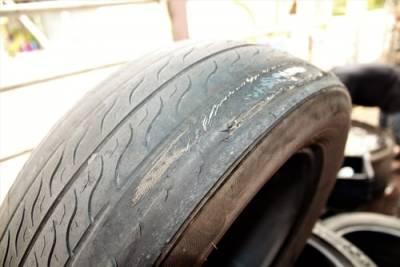 It is against Illinois law to knowingly drive on tires that are old and worn out. The result of traveling on worn tires could be having a blowout and losing control of your vehicle. This is why driving with worn tires can be punishable as reckless driving.
It is against Illinois law to knowingly drive on tires that are old and worn out. The result of traveling on worn tires could be having a blowout and losing control of your vehicle. This is why driving with worn tires can be punishable as reckless driving.
The knowledge of the tires being worn out is what will convict a person of reckless driving. This is because the offending driver knew they were driving a vehicle that was unsafe, thus putting other drivers at risk of a crash.
How Do I Know if My Tires are Worn Out?
On average, a tire should be replaced every three or four years. If a driver does not remember when they changed their tires last, they can either refer to Illinois’ vehicle code regarding tire requirements or use the penny test.
If a driver inserts a penny into one of the grooves of the tire with Lincoln’s head facing down. If the tread does not cover Lincoln’s forehead, it is time to replace the tire. According to Illinois law, tires are considered “unsafe” if:
Can a Driver Go to Jail for Aggravated Speeding Violations?
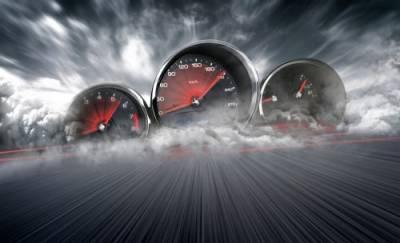 Drivers should always be aware of the legal speed limit when they are driving. Illinois roadways are usually thorough about posting speed limit signs to make drivers aware of what speed they should not exceed.
Drivers should always be aware of the legal speed limit when they are driving. Illinois roadways are usually thorough about posting speed limit signs to make drivers aware of what speed they should not exceed.
Simple speeding is a traffic violation that is punished with a ticket to be paid, but aggravated speeding comes with heavier penalties because it is a more serious crime. It is an act that puts the driver and others around them in danger of a collision; therefore, it is possible to serve a jail term after a conviction of aggravated speeding.
Simple Speeding Versus Aggravated Speeding
Illinois law says that aggravated speeding is when a driver operates their vehicle in excess of 26 miles per hour over the legal limit. Everything lower than that - but still over the speed limit - is considered simple speeding.
Police officers patrol and enforce the speed limits with a handheld radar gun which uses wind speeds to measure the rate of a vehicle’s speed. Depending on the miles per hour over the limit, the traffic citation will be costly:
How Are ‘Porch Pirates’ Punished in Illinois?
 Someone is known as a “porch pirate” when they steal packages from the doorstep of someone else’s house. The state of Illinois is the 13th worst state in the country when it comes to packages being taken. This offense is punished as theft because the person who commits the violation has the intention of keeping the items they take and they know it is against the law. Under Illinois’ theft law, porch pirating is considered a misdemeanor for items that value under $500 and a felony for items that value over $500.
Someone is known as a “porch pirate” when they steal packages from the doorstep of someone else’s house. The state of Illinois is the 13th worst state in the country when it comes to packages being taken. This offense is punished as theft because the person who commits the violation has the intention of keeping the items they take and they know it is against the law. Under Illinois’ theft law, porch pirating is considered a misdemeanor for items that value under $500 and a felony for items that value over $500.
The Penalty for Being Caught Pirating from Porches
On average, 11 million homeowners have packages stolen from their doorsteps in one year. As a result, victims find themselves changing their schedules when they know they have a package being delivered so they can be home to claim their box immediately.
How to Reinstate an Illinois Driver’s License After a DUI
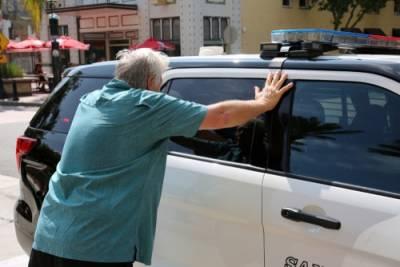 In the state of Illinois, even just one conviction of driving under the influence of alcohol or drugs will revoke the offending driver’s license for a certain amount of time.
In the state of Illinois, even just one conviction of driving under the influence of alcohol or drugs will revoke the offending driver’s license for a certain amount of time.
Minors who drive while intoxicated will be charged under the zero-tolerance law and lose all driving privileges for at least two years. Adults can have their license revoked for life depending on the amount of DUI convictions they have on their record.
Illinois Restricted Driving Permit
Not having a valid driver’s license is impactful especially for adults who have to commute to a job. They could lose working time if they do not have a car in order to get to work on time.
Teenagers who drive to school have a similar problem and can miss school time without transportation.
To fix this problem, Illinois allows some DUI offenders to apply for a restricted driving permit. This court-approved document allows a driver to attend school or work but does not allow pleasure or leisure driving.
What Happens When an Illinois Order of Protection is Violated?
 Domestic violence affects one in four women nationwide. Unfortunately, many acts of abuse are not reported and therefore are not stopped. The reality is that silence about abuse can lead to the death of the victim. Those who do report domestic violence can then issue an order of protection against their abuser. In the state of Illinois, violation of this court-ordered document is a misdemeanor offense that can be elevated to a felony offense against second-time violators.
Domestic violence affects one in four women nationwide. Unfortunately, many acts of abuse are not reported and therefore are not stopped. The reality is that silence about abuse can lead to the death of the victim. Those who do report domestic violence can then issue an order of protection against their abuser. In the state of Illinois, violation of this court-ordered document is a misdemeanor offense that can be elevated to a felony offense against second-time violators.
What Is an Order of Protection?
After reporting the domestic violence, a victim can hire an attorney and ask them to file for an order of protection against their abuser. Typically, this order is issued when the victim and abuser are relatives or spouses.
Once the alleged abuser has been given the order, it stops them from:
Victims of “Revenge Porn” Can Now Collect Compensation
 In 2015, the state of Illinois made the act of distributing “revenge porn” a felony offense. This crime is when a person distributes private, intimate photos and videos without permission of the person in the images.
In 2015, the state of Illinois made the act of distributing “revenge porn” a felony offense. This crime is when a person distributes private, intimate photos and videos without permission of the person in the images.
Illinois amended the Civil Remedies for Nonconsensual Dissemination of Private Sexual Images Act - which covers revenge porn - so that victims of revenge porn can collect compensation starting the first of 2020.
What is Revenge Porn?
Typically, revenge porn occurs after a nasty breakup. One ex-partner unlawfully sends intimate material from their ex-partner in order to get back at them for the breakup. According to national statistics, 90 percent of revenge porn victims are female.
Under Illinois’s Civil Remedies for Nonconsensual Dissemination of Private Sexual Images Act, revenge porn includes pictures and/or videos of:
Higher Fines for Certain Traffic Violations in Illinois
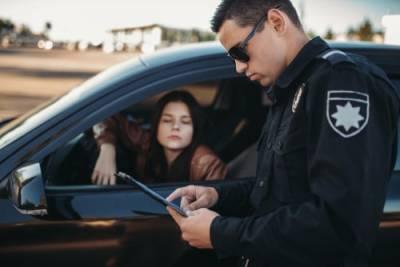 In 2019, the Illinois State Police issued 5,860 tickets for violators of Scott’s Law. This law protects law enforcement officials during traffic stops by requiring drivers to give enough room when they see stopped police vehicles on the road.
In 2019, the Illinois State Police issued 5,860 tickets for violators of Scott’s Law. This law protects law enforcement officials during traffic stops by requiring drivers to give enough room when they see stopped police vehicles on the road.
Of the violations in 2019, the ISP reported that 27 police cruisers were struck and three officers were killed. In an attempt to protect Illinois officers, the state government amended Scott’s Law so that punishments are more costly to violators.
How Has Scott’s Law Changed?
Scott’s Law was passed in 2002 to protect Illinois law enforcement officers. This past year, there were more violations than in 2016, 2017, and 2018 combined.
Violators of Scott’s Law used to be fined $100 for first offenses, but this year, fines have been doubled to $250. Subsequent offenses will cost no less than $750. Additionally, each violation of Scott’s Law will be punished with a $250 fine that will fund education of this law.
No More Statute of Limitations for Illinois Sex Offenses
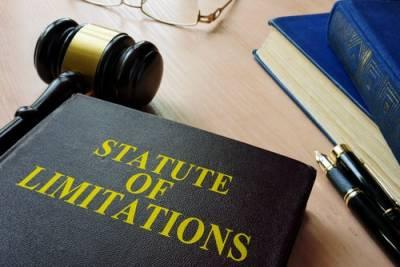 The new decade brought over 250 new laws - or amended laws - to the state of Illinois. The changes affect a variety of law topics, but the majority are classified under criminal law. Of course, many people quickly became aware of the legalization of recreational marijuana, but a fortunate amendment to one bill affected domestic violence and sexual offenses. As of the first of the year, there is no longer a statute of limitations to prosecute major sex crimes in Illinois.
The new decade brought over 250 new laws - or amended laws - to the state of Illinois. The changes affect a variety of law topics, but the majority are classified under criminal law. Of course, many people quickly became aware of the legalization of recreational marijuana, but a fortunate amendment to one bill affected domestic violence and sexual offenses. As of the first of the year, there is no longer a statute of limitations to prosecute major sex crimes in Illinois.
The Law: Then and Now
Illinois law previously had a limited amount of time in which a prosecutor could take an alleged sex offender into litigation. A typical sex crime case includes offenses such as:
- Rape
- Sexual harassment
- Sexual abuse
- Sexual assault







